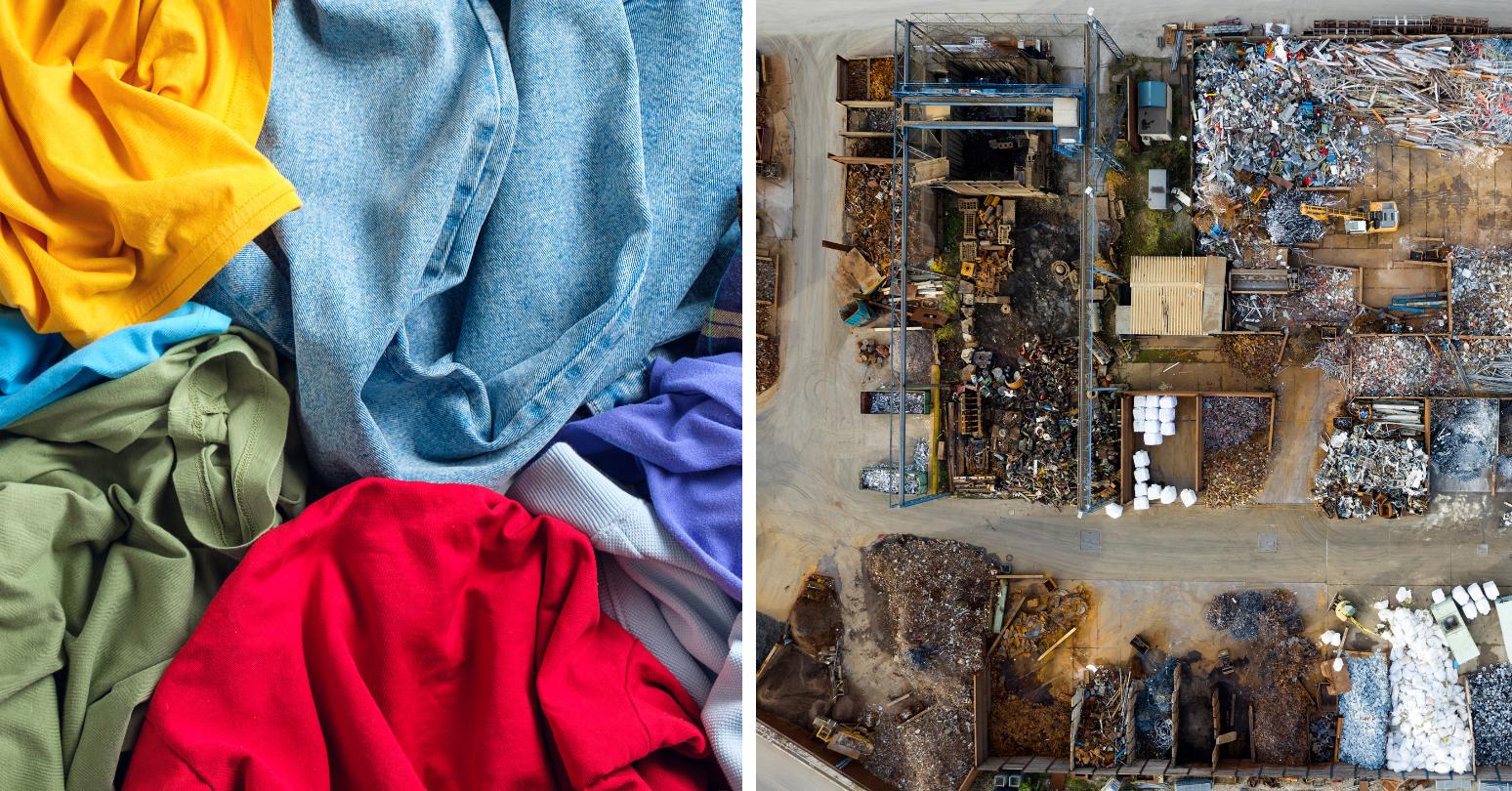An ongoing research project out of the Centre for Building Sustainable Value’s Circular Economy Lab aims to support decision-making for a climate-smart circular economy in the textile, construction, and agri-food sectors.
Professor Jury Gualandris and I (Sourabh Jain) are extending our work on the agri-food sector to the Canadian construction and textile industries. The research will support decision-making for climate-smart circularity by identifying best practices that incorporate principles of systems thinking through life cycle assessment (LCA).
About the project
Our recent LCA-informed project discovered that not all circular solutions mitigate climate change (lower greenhouse gas emissions). Each potential solution only mitigates climate change under certain conditions. For example, in the case of managing wet spent grain and fruit & vegetable residues in Ontario and Quebec, we noted that upcycling mitigated climate change only when the following three conditions were met:
- The geographical scale of operations remained within 250 km;
- The upcycling technology used less than 1500 kWh of electricity per tonne of food discards;
- The quality of the upcycled ingredient was the same as the quality of the equivalent virgin substitute
We concluded that we need climate-smart circularity – solutions that simultaneously close the material loop and mitigate climate change. However, designing for climate-smart circularity often requires using systems thinking tools such as LCA.
Conducting an LCA study is complex due to the numerous contextual factors, including geographical, technological, operational, and energy parameters. This next project aims to extend what we did in the agri-food sector and indicate conditions under which managing other discard streams can mitigate climate change. The insights will support decision-making by identifying the best protocols and practices for the situation, incorporating systems thinking and LCA.
The work will consider three post-consumer discard streams in the textile industry – cotton, polyester, and a blend of cotton and polyester - and three discard streams in construction – wood, plastics, and concrete.
In the textile sector, we chose cotton and polyester because over 80% of clothing is made from these two fibers. In construction, wood, concrete, and plastics are among the major contributors to the overall quantity of discards. Metals, particularly steel, are often recovered already, and therefore, we chose not to consider them in our project.
Why these sectors and streams?
Ivey and the Canadian Standards Association (CSA), the project funder, chose the textile and construction sectors because both have huge ecological implications for the Canadian economy and the world.
For example, within the textiles sector, both natural and synthetic fibers have large ecological footprints. Natural fibers such as cotton and viscose require 2.5% of the world’s arable land and the logging of 70 million trees per year to produce. Producing polyester fibers consumes 342 million barrels of oil, which equates to about 1.35% of global oil production. Textile production as a whole consumes 93 trillion liters of water, which is equivalent to 4% of the global water use. The textile industry contributes 8-10% of global greenhouse gas emissions. The industry also has significant impacts during the post-consumption phase.
Globally, the construction sector consumes about 50% of total material inputs, accounts for 40% of municipal solid waste, and releases nearly 10-12% of global annual greenhouse gas emissions. Much of Canadian construction waste is landfilled due to contamination from adhesives, paint, and chemicals (in the case of wood) or material diversity (in the case of plastics).
Why should we care about such standards?
Standards are critical so organizations have a guideline of how to ‘do better.’ A lack of circular economy standards creates added work for individual organizations to embrace sustainability. Our research findings will support CSA in developing standards that are well-aligned with their Circular Economy Strategic Initiative. The results will complement the work the Environment and Climate Change program’s ISO (International Organization for Standardization) is doing to provide broad direction and guidance for circularity across all sectors and industries. Organizations can incorporate such standards into their corporate decision-making protocols along with LCA for climate-smart circularity.
About the researchers
The project is led by Professor Jury Gualandris, who studies operations and supply chain management and sustainability. Sourabh Jain is a postdoctoral scholar specializing in life cycle assessment and modelling. Funding for the project comes from CSA and Mitacs. CSA aims to reduce greenhouse gas emissions by developing standards and protocols for the circular economy. Mitacs empowers Canadian innovation through partnerships.
These researchers are supported by the network of researchers, experts, and support staff at the Centre for Building Sustainable Value. Sourabh notes that this network has been critical to securing funding and contacting various companies.
Our project was approved in July 2023. The team is currently completing a literature review and conducting interviews in preparation to develop circularity pathways of different discard streams in Canadian context, conduct a life cycle assessment, and identify generalizable pattern for supporting standards.
If you are interested in getting involved with the research as an expert, please contact sjain257@uwo.ca.



